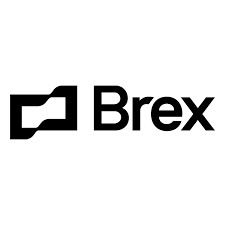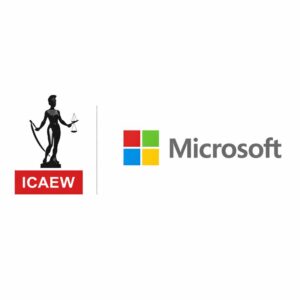How Accounting Software Transforms the Profession
Transform your practice with accounting software that automates, collaborates, and grows with you

Discover how accounting software revolutionizes the profession by automating tasks, improving accuracy, and providing real-time financial insights for businesses.
The accounting profession has evolved significantly over the past decade, primarily due to advancements in technology. Gone are the days of manual calculations and reliance on paper records. Today, accounting professionals use sophisticated software to streamline their processes, increase efficiency, and provide greater value to their clients. This transformation is not just about adopting new tools. It is fundamentally changing how accountants work. It also changes how businesses manage their finances.
In this blog, we’ll explore how accounting software is reshaping the profession. We will also examine the many benefits it brings to accounting professionals and their clients.
Automating Tasks for Greater Efficiency
Historically, accountants spent hours on repetitive tasks such as data entry, invoicing, and reconciliation. These tasks were not only time-consuming but also prone to errors. Modern accounting software has automated many of these manual processes. This automation allows accountants to focus on more important, value-driven activities.
Accounting software like QuickBooks and Xero now handle routine processes automatically. These processes include invoicing, expense tracking, payroll management, and even tax filing. This helps save time and reduce the risk of human error. Automation also ensures that all financial data is accurately captured, which improves the quality of financial reporting. For accounting professionals, this means they can deliver faster, more accurate results without the need for hours of manual labor.
Making Informed Decisions with Real-Time Data
One of the most significant advantages of modern accounting software is access to real-time data. In the past, accountants would wait for monthly or quarterly reports to assess the financial health of a business. Now, thanks to cloud-based accounting solutions, accountants can access up-to-date financial data at any time.
This constant access to real-time information allows accountants to give clients proactive advice. They can identify cash flow problems early. They can also recommend investment opportunities. Real-time data empowers accountants to make better-informed decisions and helps clients take swift action when needed. It allows accountants to tailor their services. They can adjust reports to the specific needs of their clients. This ensures that the advice they give is timely. It is also relevant.
Customization to Fit the Unique Needs of Clients
Every business has its own unique set of financial requirements, which is why customizable accounting software is so valuable. Accountants can work with a small business, a startup, or a large enterprise. The software can be tailored to meet the specific needs of each client.
For example, software like FreshBooks and Sage Intacct offers customizable templates and features that cater to various industries. Smaller businesses may only need basic tools. These include invoicing and expense tracking. Larger companies may need more advanced features. These features could be multi-currency support, automated tax calculations, and project tracking. This adaptability allows accountants to provide personalized services and ensure their clients get exactly what they need.
Enhancing Client Collaboration and Communication
The relationship between accountants and their clients has always been critical. Modern accounting software has taken that collaboration to the next level. Cloud-based solutions make it easy for both accountants and clients to access and share important financial data in real time.
With features like secure client portals, accountants can provide clients with direct access to their financial information. This transparency reduces the need for constant emails and phone calls and fosters a more efficient working relationship. Clients can review reports, track expenses, and even leave comments or questions directly on the platform.
Moreover, these tools ensure that all communication is secure and accessible, with encryption and multi-factor authentication safeguarding sensitive financial data. Accounting software streamlines collaboration. It helps accountants work more closely with their clients. This allows for faster decision-making. It also leads to more productive working relationships.
Security and Protection for Sensitive Data
As businesses and clients become more dependent on digital tools, data security has become an essential consideration for accountants. Accounting professionals handle highly sensitive financial data, which makes it crucial to use software solutions that offer robust security features.
Leading accounting software providers integrate advanced security measures. These include data encryption, multi-factor authentication, and regular data backups. These measures ensure that client data is protected from cyber threats. These security protocols safeguard sensitive financial information. They reduce the risk of data breaches. This offers peace of mind to both accountants and their clients.
By using secure accounting software, professionals can protect their clients’ financial information and build trust in the services they provide. Data security is an increasingly pressing concern. Accountants must choose solutions that prioritize the safety of their client’s information.
Adapting to Business Growth with Scalable Solutions
One of the standout features of modern accounting software is its scalability. As businesses grow, their financial management needs evolve. Accounting software can easily scale with a business, adding new functionalities and features as required.
Small businesses may start with basic accounting features. As they expand, they may need more complex tools to manage payroll, taxes, and inventory. Accounting software like Xero and QuickBooks Online helps businesses grow. They add capabilities such as automated invoicing, tax filing, and multi-currency transactions.
For accountants, this scalability means they can continue working with clients as their needs evolve. They do not have to switch platforms or start over. The flexibility to adapt software as a business grows is a major advantage. This adaptability enables accountants to maintain consistency and high-quality service throughout their client’s journey.
Embracing the Future of Accounting
Technology is transforming accounting practices. Accounting professionals who embrace digital tools will be better positioned to meet their clients’ needs. They will thrive in an increasingly competitive environment. With the right accounting software, professionals can automate routine tasks. They gain access to real-time financial data and provide personalized services. This enables them to collaborate more effectively with clients.
As accounting software continues to evolve, its impact on the profession will only grow. Innovations such as artificial intelligence and machine learning are on the horizon. The future of accounting is digital. It is data-driven and highly efficient. By adapting to these changes, accounting professionals can stay ahead of the curve and provide exceptional value to their clients.





